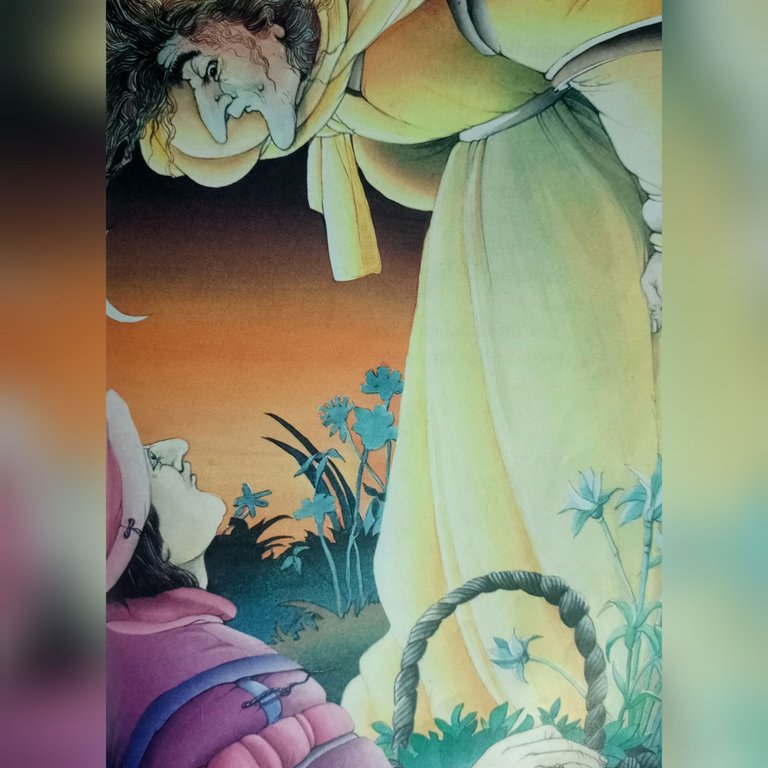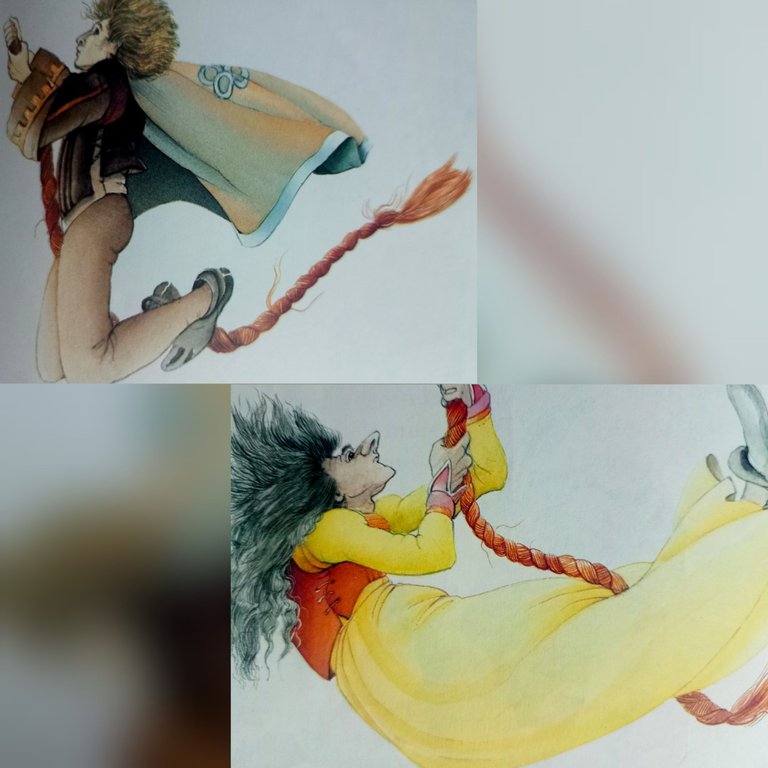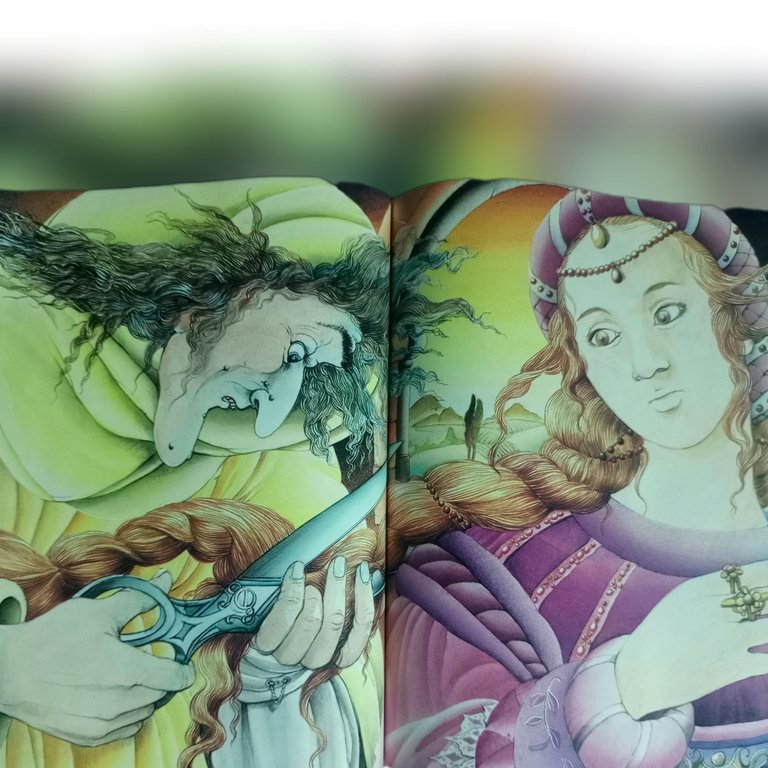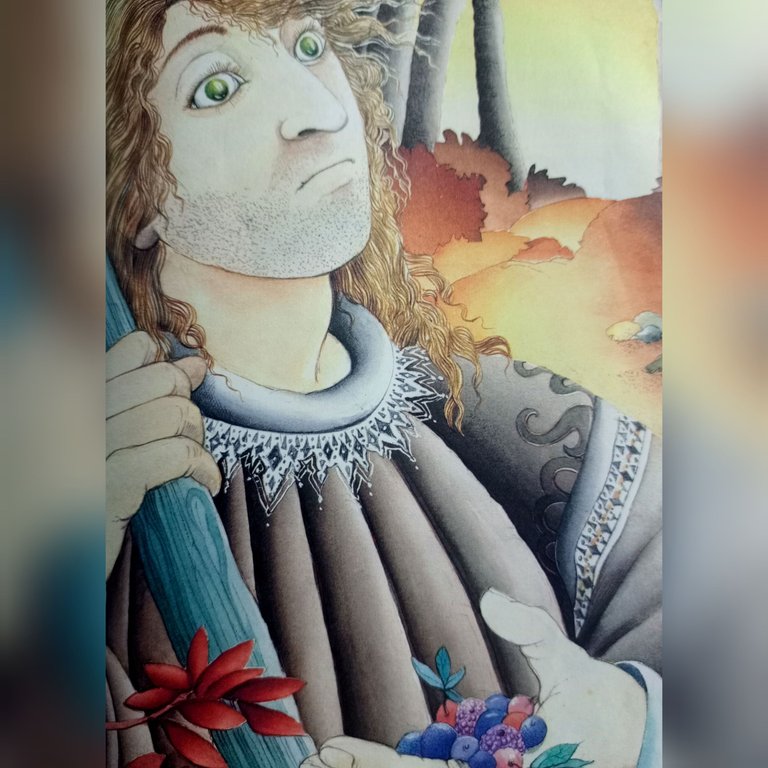A story that I always remember with special affection since I was a child is Rapunzel by the Brothers Grimm, this princess won my affection for her beautiful golden hair that I always wanted to have, but I could not for obvious reasons and because my mother did not like me to go to school with such long hair, so that fantasy gradually disintegrated.
From the story I loved the unusual way of climbing the castle, which was not only novel but also represented the way to freedom. Being locked up in a tower since the age of 12, in the middle of a forest, is a cruel punishment for a teenager. The story, which was part of the oral tradition before it was versioned and published in 1812, reflects in large part what happened in what is now German territory in the early 1800s, when the nation was invaded by Napoleon Bonaparte and therefore the maidens were hidden by their parents so as not to become spoils of war for the French.

On the other hand, do cravings in pregnancy really exist? Some people support this approach and others simply dismiss it as mere superstition. The truth is that Rapunzel's mother (when she was pregnant with her) wanted some splendid radishes from a witch's garden. The husband was very committed to satisfy his wife's requests, because she began to lose weight, was weak, pale and thought that she would soon die if she did not get what she wanted. Here we see the presence of the Dark Ages, a historical period in which reason and logic succumbed to whims, popular beliefs and religious fanaticism.
Rapunzel's parents disappear from the narrative, as if the earth had swallowed them. Where were they, why didn't they go to rescue their daughter? Questions that remain in the air and that the story does not answer because it hints that Rapunzel is approaching a critical age, in an environment where a marriage of convenience was part of the social paradigms.

A curious aspect is the witch's maternal instinct, she wishes to have a child and takes advantage of the couple's naivety to make her wish come true. So much so, that she is the one who decides to name the young captive Rapunzel. Since ancient times, the naming of a baby is a transcendental act because it strengthens the bond between mother and child. This peculiar characteristic does not correspond to the stereotype of witches that is common in fairy tales since Rapunzel comes to believe that the witch is her mother, so she lives deceived.
Recklessness is also distinguished by the hand of the husband, who visited the garden twice to please his wife. Usually it is likely that someone thinks he is immune to a risky situation because he escaped danger the first time, so the second time will be the same. Thus come misfortunes or actions that leave consequences to be regretted for the rest of one's life.

We also witness love at first sight and it is accentuated through one sense: hearing. The prince first falls in love with Rapunzel's sweet voice, who is able to captivate and seduce with words and, of course, with songs. Music is an encouragement for the soul, through a pleasant melody we enjoy a deep state of relaxation and well-being. The talent of the young woman is then presented as a priority, leaving the physical appearance in the background.
Rapunzel's story also calls us to reflect on the perception of beauty, for her the most valuable thing was her hair, but once she lost it she realized she could live without it, a sign of maturity and common sense, especially when going through adolescence, a stage in which public image is usually very relevant.

Here the witch does not receive any punishment, which leads to questioning justice because after carrying out evil acts against two young girls, she goes unpunished. Misfortune marks Rapunzel's life, from being abandoned by her parents and held captive for years, to losing her precious hair and ending up living in misery. The prince fared no better, being blinded after falling from the tower where his beloved lived. However, as true love overcomes any obstacle, he is finally reunited with Rapunzel and they both manage to be happy after going through bitter paths. It can be said that this story is a model for the telenovelas that have been coming to our homes for quite some time.

Un cuento que siempre recuerdo con especial cariño desde niña es Rapunzel de los Hermanos Grimm, esta princesa se ganó mi afecto por su hermosa cabellera dorada que siempre quise tener, pero no pude por razones obvias y porque además a mí mamá no le gustaba que acudiera a la escuela con el cabello tan largo, así que esa fantasía se fue desintegrando paulatinamente.
Del relato me encantó esa inusual forma de escalar el castillo que no solo era novedosa sino que representaba la vía hacia la libertad. Estar encerrada en una torre desde los 12 años, en medio de un bosque, es un castigo cruel para un adolescente. La historia, que formó parte de la tradición oral antes de ser versionada y publicada en 1812, refleja en buena parte lo que ocurrió en lo que hoy es territorio alemán a principios de 1800, cuando la nación fue invadida por Napoleón Bonaparte y por lo tanto las doncellas fueron escondidas por sus padres para no convertirse en un botín de guerra para los franceses.

Por otra parte, ¿Realmente existen los antojos en el embarazo? Algunas personas apoyan este planteamiento y otras sencillamente lo descartan como simples supersticiones. Lo cierto es que la mamá de Rapunzel (cuando estaba embarazada de ella) deseaba unos espléndidos rábanos del jardín de una bruja. Tamaño compromiso tenía el esposo en complacer las peticiones de su mujer, pues ella empezó a adelgazar, estaba débil, pálida y pensaba que pronto moriría si no tenía lo que quería. Acá se advierte la presencia del Oscurantismo, período histórico en el cual la razón y la lógica sucumbían ante los caprichos, las creencias populares y el fanatismo religioso.
Los padres de Rapunzel desaparecen de la narración, tal como si la tierra se los hubiera tragado. ¿Dónde estaban?, ¿Por qué no fueron a rescatar a su hija? Preguntas que quedan en el aire y que la historia no responde porque se insinúa que Rapunzel se aproxima a una edad crítica, en un entorno donde un matrimonio por conveniencia era parte de los paradigmas sociales.

Aspecto curioso es el instinto maternal de la bruja, ella desea tener un hijo y se aprovecha de la ingenuidad de aquella pareja para hacer su anhelo realidad. Tanto es así, que ella es quien decide colocarle el nombre Rapunzel a la joven cautiva. Desde tiempos remotos, el nombre del bebé es un acto trascendental porque refuerza el vínculo entre madre e hijo. Esta peculiar característica no corresponde con el estereotipo de brujas habituales en los cuentos de hadas puesto que Rapunzel llega a creer que la bruja es su madre, así que vive engañada.
La imprudencia también se distingue de la mano del esposo, quien visitó el jardín dos veces para darle gusto a su esposa. Por lo regular es probable que alguien piense que es inmune a una situación de riesgo porque se libró del peligro la primera vez, entonces la segunda también será igual. Así sobrevienen las desgracias o las acciones que dejan consecuencias que lamentar el resto de la vida.

Asistimos también al amor a primera vista y se acentúa por medio de un sentido: el oído. El príncipe primero se enamora de la dulce voz de Rapunzel, quien es capaz de cautivar y seducir con palabras y, por supuesto, con canciones. La música es un aliciente para el alma, a través de una melodía agradable disfrutamos de un profundo estado de relajación y bienestar. El talento de la joven entonces se presenta como prioridad, dejando la apariencia física en segundo plano.
El relato de Rapunzel también nos llama a la reflexión en lo que respecta a la percepción de belleza, para ella lo más valioso era su cabello, pero una vez que lo pierde se dio cuenta que podía vivir sin él, una señal de madurez y sentido común, sobre todo cuando se atraviesa por la adolescencia, etapa en la cual la imagen pública suele ser muy relevante.

Acá la bruja no recibe ningún castigo, lo que lleva a cuestionar la justicia porque después de realizar actos de maldad contra dos jóvenes queda impune. La desdicha marca la vida de Rapunzel, desde ser abandonada por sus padres y permanecer cautiva durante años, hasta perder su preciado cabello y terminar viviendo en la miseria. Al príncipe no le fue mejor, quedó ciego tras caer de la torre donde vivía su amada. Sin embargo, como el amor verdadero supera cualquier obstáculo, finalmente, se reúne con Rapunzel y ambos logran ser felices después de transitar caminos de amarguras. Se puede decir que esta historia constituye un modelo para las telenovelas que desde hace un buen tiempo han llegado a nuestros hogares.

✓Photos from my personal gallery, edited with Fotocollage.
✓Text translated with DeepL.
📚📘📚📘📚📘📚📘📚📘📚
✓Fotos de mi galería personal, editadas con Fotocollage.
✓Texto traducido con DeepL.
Posted Using INLEO